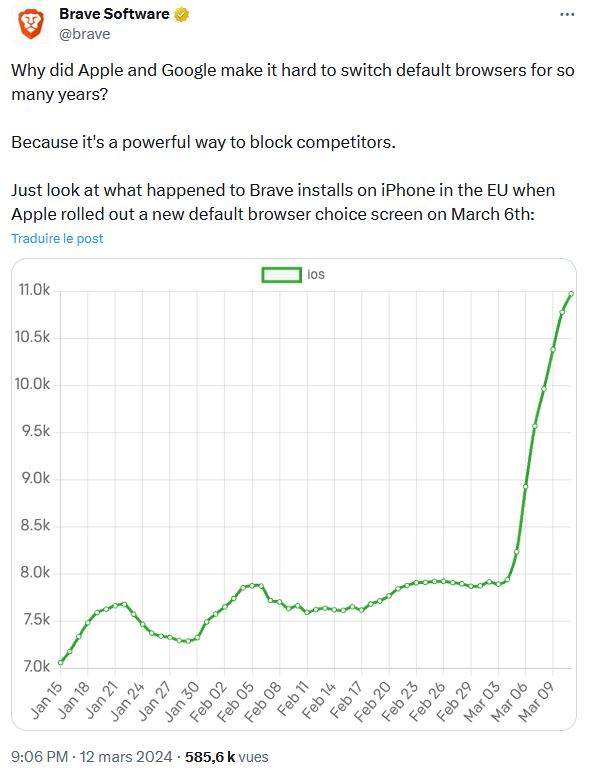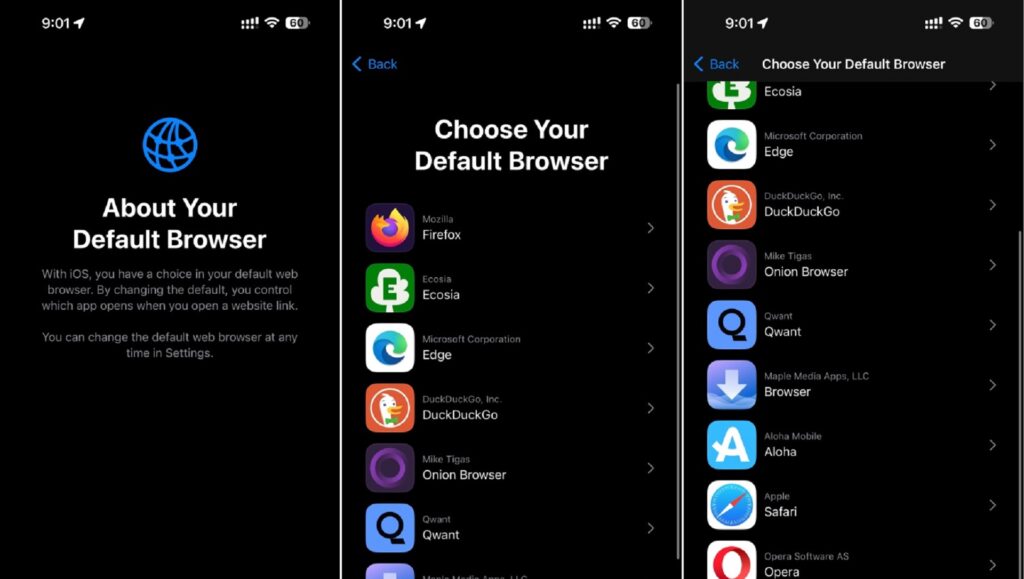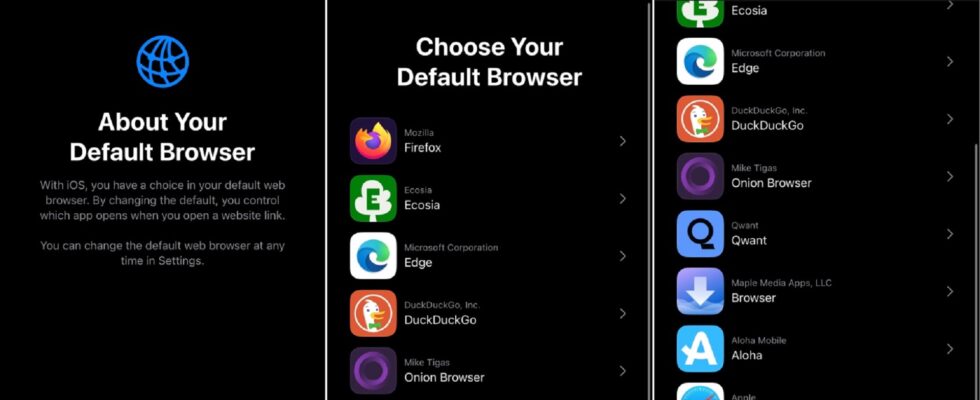Web browsers that compete with Safari on iOS are experiencing a boom. The reason ? The Digital Markets Act (DMA) has come into force and is forcing Apple to loosen its grip on iOS. Internet users choose Brave, Firefox or even Opera. But questions persist.
It has been almost two weeks since the Digital Markets Act (DMA) entered into force in the European Union and its effects are already visible. In the field of web browsers, for example, some publishers are doing well. Opera observed an explosion in downloads between March 5 and 7, 2024.
And that’s not an understatement. In a press release shared on March 18, the Norwegian company reported a 164% increase in the number of iOS users in Europe – where the DMA applies. The company considers that this peak is necessarily linked to the European text, which became reality on March 7.
The company gives some examples of large countries where peaks are high, even spectacular. In Germany, the jump reached 56%. In Poland, 68%. Spain does better with an increase of 143%. But it is France which appears to be the champion in all categories, with an increase of 402%.
Firefox and Brave are also booming on iOS
Opera’s sightings are not an isolated case. The other browsers that compete with Safari (Apple’s in-house web browser) on iOS are also experiencing their best period in Europe, as evidenced by the comments these days from Brave and Firefox. They too are experiencing unprecedented acceleration on iOS.
On X (ex-Twitter), Brave said on March 12 that for too long Apple and Google have made it difficult to change the default browser, “ because it is a powerful way to block competitors “. To support its statement, the company shared a chart showing the volume of new Brave installs since the beginning of March.

Firefox is also experiencing good momentum, with an increase of 50% in Germany and almost 30% in France. A spokesperson told The Verge that “ the recent implementation of the DMA’s choice screen is a promising step towards real online competition in the EU… even if compliance [d’Apple] is not ideal “.
What long-term effect for DMA on iOS?
As part of the DMA, when starting Safari for the first time, internet users from the EU now have the choice of switching web browsers – like on Windows or Android. For the European Commission, this is to prevent Apple from imposing Safari or making change difficult. The public must be able to transition easily.
The framework set up provides a selection screen in which the position of each browser is random: in addition to Safari, Firefox, Opera and Brave, we also find Chrome, DuckDuckGo, Ecosia, Edge, Qwant, Onion Browser, Aloha and Private Browser Deluxe . This development arrived with the iOS 17.4 update.


It now remains to be seen whether Internet users who have opted for solutions competing with Safari remain satisfied with their choice and stick with it. Or if, conversely, they return to Apple’s in-house web browser. It will likely take several weeks to several months to see the long-term dynamics of the DMA.
Another question: have Internet users understood the reasons why this web browser choice screen is now on iOS? Do they know what DMA is? And above all, have they really understood what a web browser is and its role? The question will surprise technophiles, but electronics should not be underestimated at all.
Subscribe for free to Artificielles, our newsletter on AI, designed by AIs, verified by Numerama!
